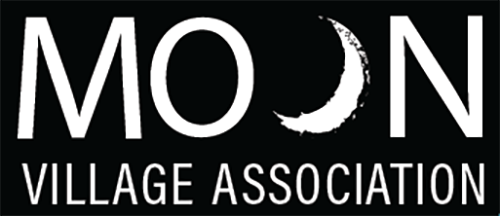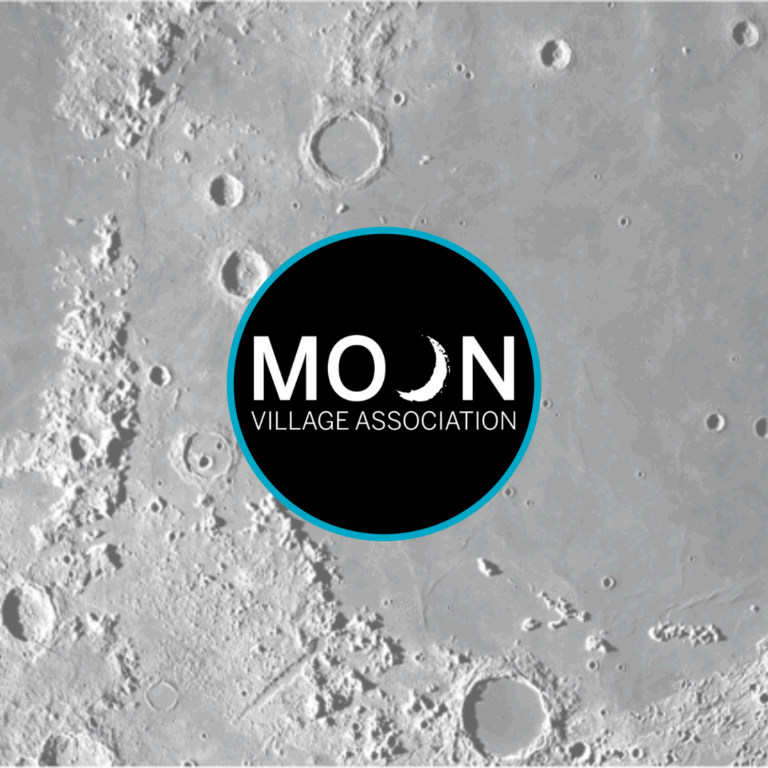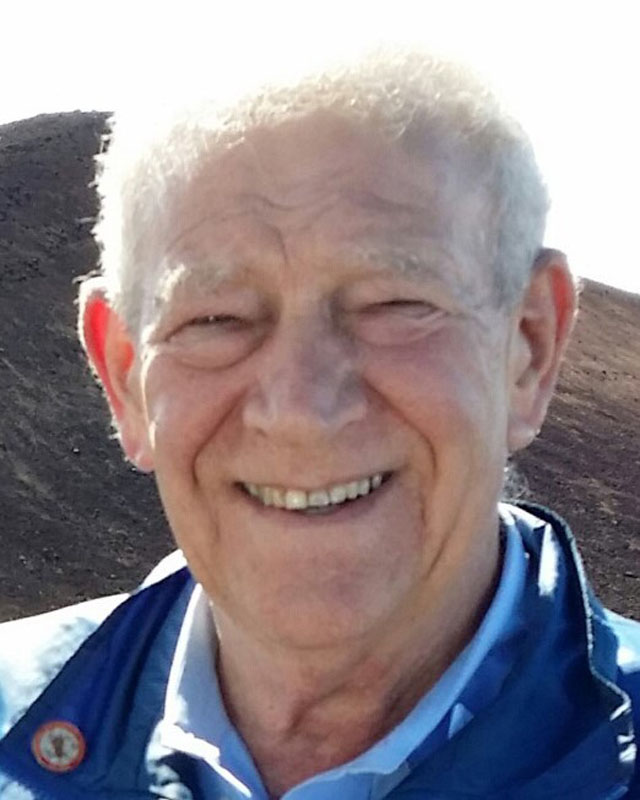
Press Release: Moon Village Association, Harbin Institute of Technology, and Chinese Society of Astronautics Join Forces for “Moon Station 2050” Global Innovation Competition and International Moon Day 2024 Main Event
Vienna, Austria – (25 January, 2024)
The Moon Village Association (MVA), Harbin Institute of Technology (HIT), and the Chinese Society of Astronautics (CSA) are delighted to announce their collaboration and the signing of a Memorandum of Understanding (MoU) to organize the “Moon Station 2050” Global Innovation Competition. This international competition aims to foster groundbreaking ideas and advancements in lunar exploration, inviting young scholars under the age of 35 from universities and institutes worldwide to participate.
The Moon Station 2050 Global Innovation Competition invites teams or individuals to submit concepts and technologies related to one of five critical themes: Lunar Architecture, Lunar Energy, Lunar Robot, Lunar Transportation, and Life Support. Participants are encouraged to think beyond conventional boundaries, with a specific focus on the lunar South Sverdrup-Henson crater as the designated site for their Moon Station Design. The competition’s goal is to inspire innovative solutions for the future construction and operation of lunar habitats. Distinguished experts and professionals from the space sector will form the jury for each competition category.
The President of the Moon Village Association, Dr. Giuseppe Reibaldi, said: “MVA is proud to co-organize the event, as it is important that China lunar activities, like the Moon Station 2050 initiative, are carried out on a global scale and be part of the Moon Village. This shall have the goal to increase peaceful cooperation for the exploration and utilization of the Moon”.
Prof. Zexu ZHANG from Harbin Institute of Technology mentioned “We are very pleased to co-organize the Lunar Station 2050 Competition with the Moon Village Association and Chinese Society of Astronautics, hoping to inspire the interest of young scholars from universities and research institutions around the world to explore and develop the moon. We are also hope that the competition will promote international educational cooperation in the field of aerospace.”
The Deputy Secretary General of Chinese Society of Astronautics, Prof. Jun JANG, stated:” CSA is proud to co-organize the Lunar Station 2050 Competition with the Moon Village Association and Harbin Institute of Technology. This event is to promote the development of the moon exploration science and technology, and to foster the construction of a human community with a shared future. We welcome experts and scholars to join this event for seeking, shearing and cooperation.
The culmination of the Moon Station 2050 Global Innovation Competition will be marked by an Award Ceremony, held in conjunction with the International Moon Day (IMD) 2024 Main Event. This dual celebration is scheduled to take place on July 20 at the Harbin Institute of Technology in Harbin, China.
The International Moon Day, celebrated annually on July 20, commemorates the historic achievement of the first manned lunar landing. The IMD Main Event serves as a platform to showcase global advancements in lunar exploration and science. Previous IMD Main Events were held in Gwacheon, South Korea, and the Inaugural Celebration took place in Huntsville, Alabama, USA.
We invite young scholars, visionaries, and innovators from universities and institutes worldwide to participate in the Moon Station 2050 Global Innovation Competition and join us for the International Moon Day 2024 Main Event. Together, let us continue pushing the boundaries of human exploration and usher in a new era of lunar discovery.
For further information please visit:
Moon Station 2050 competition: https://www.moonstation2050.com
International Moon Day: https://internationalmoonday.org
About the Moon Village Association
The Moon Village Association (MVA) is an international non-governmental organization (NGO) based in Vienna, founded in 2017. Its goal is the creation of a permanent global informal forum for stakeholders like governments, industry, academia and the general public interested in the development of the Moon Village. The MVA is the assembling of all efforts from private industry, governments and others aimed to explore and use the Moon in a sustainable manner. The MVA fosters cooperation for existing or planned Moon exploration programs, be they public or private initiatives. It comprises more than 800 participants to MVA activities and 27 institutional members from more than 60 countries, representing a diverse array of technical, scientific, cultural and interdisciplinary fields. The MVA partners with non-space organizations to promote international discussions and formulation of plans to foster the development of the Moon Village, and is creating international, national and regional networks to engage civil society around the world. The Moon Village Association’s mission is unique, bridging together both spacefaring and non-spacefaring nations offering them the opportunity to play a role in its realization. There is no other organization on the international scene having such a mission.
Glafki Antoniou
Management Support Officer and Public Relations
Email: gro.n1772609213oitai1772609213cossa1772609213egall1772609213ivnoo1772609213m@uoi1772609213notna1772609213.ikfa1772609213lg1772609213
For more information, visit the website at: www.moonvillageassociation.org .
About Harbin Institute of Technology (HIT)
Harbin Institute of Technology (HIT) was established in 1920 in Harbin, Heilongjiang, China. In 1954, HIT became one of China’s first six leading universities. It is a National Key University with science and engineering as its core and has developed with management, liberal arts, economy, law and other disciplines. Renowned as “the cradle of engineers,” the university has many firsts. HIT established the first School of Astronautics in China. It was the first Chinese university to independently develop and enter small satellites into the moon’s orbit. HIT was also the first to achieve satellite ground laser communication link communications. The first human–machine in orbit maintenance experiments on a space operator was also developed by HIT. At HIT, there are 23 schools, 86 undergraduate programs, 9 National Key Disciplines, 7 National Key Labs, and 39 members of the prestigious Chinese Academy of Sciences and Chinese Academy of Engineering. Eleven disciplines of HIT are ranked among the top 1% on the Essential Science Indicators (ESI) lists. In 2020, HIT ranked 6th on the list of the best global universities for engineering announced by the U.S. News & World Report. Since its beginning, HIT has always had a strong international environment. Now HIT has signed academic cooperation agreements with 278 universities in 39 countries. These collaborations include student and faculty exchange programs, joint academic conferences, and scientific research cooperation. HIT is steadily moving towards the goal of becoming a world-class university.
Dr. Shuai Yuan
Harbin Institute of Technology
Email: nc.ud1772609213e.tih1772609213@nauy1772609213iauhs1772609213
For more information, visit the website at: http://en.hit.edu.cn
About Chinese Society of Astronautics (CSA)
The Chinese Society of Astronautics (CSA) was founded in October 1979. Composed of space science and technology professionals, CSA is an NGO with the most academic representation and international influence in China’s space community. CSA aims to promote innovation and development of space science and technology, and facilitate its popularization and dissemination. CSA has 47 committees, 185 institutional members and more than 100,000 individual members, and has joint offices with the branches of two international organizations, namely, the Studies Center of the International Academy of Astronautics (IAA) and the Select Sub-Committee on Satellite Commercial Applications (IAF).CSA is actively engaged in national and international academic exchanges and cooperation in space, and has established bilateral or multilateral relations with many international space organizations and institutions, as well as national and regional organizations. As the host of such important international events as the 47th IAC, the 64th IAC, the GLUC 2010, the GLEX 2017 and the China Space Conferences, CSA has been playing an active role in promoting the peaceful utilization of space resources for the benefit of human society.
Ms. LI Luping
Science and Popularization Department
Chinese Society of Astronautics
Email: moc.3177260921361@pl1772609213lecar1772609213g1772609213
For more information, visit the website at: http://www.csaspace.org.cn/



